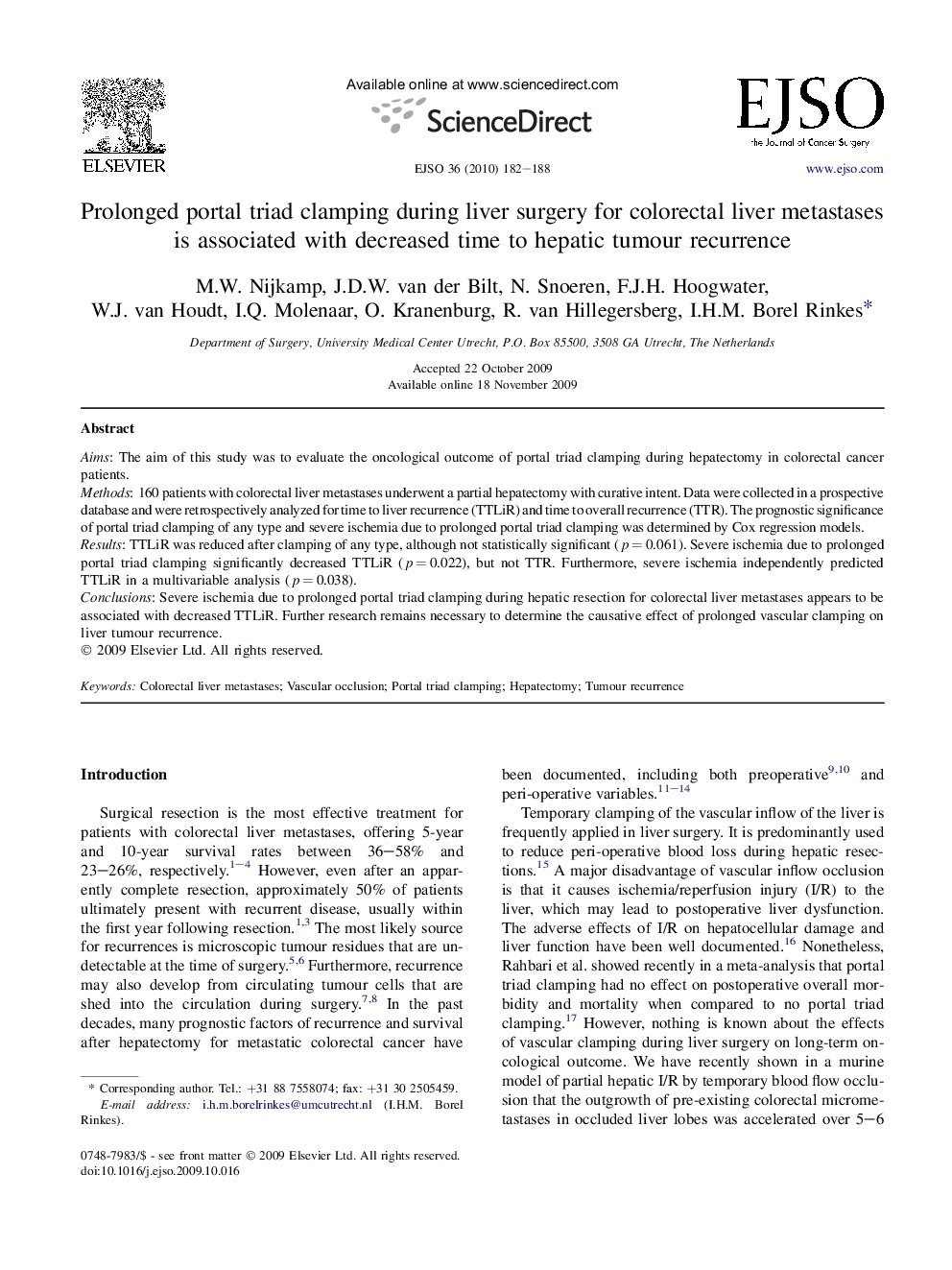| Article ID | Journal | Published Year | Pages | File Type |
|---|---|---|---|---|
| 3987535 | European Journal of Surgical Oncology (EJSO) | 2010 | 7 Pages |
AimsThe aim of this study was to evaluate the oncological outcome of portal triad clamping during hepatectomy in colorectal cancer patients.Methods160 patients with colorectal liver metastases underwent a partial hepatectomy with curative intent. Data were collected in a prospective database and were retrospectively analyzed for time to liver recurrence (TTLiR) and time to overall recurrence (TTR). The prognostic significance of portal triad clamping of any type and severe ischemia due to prolonged portal triad clamping was determined by Cox regression models.ResultsTTLiR was reduced after clamping of any type, although not statistically significant (p = 0.061). Severe ischemia due to prolonged portal triad clamping significantly decreased TTLiR (p = 0.022), but not TTR. Furthermore, severe ischemia independently predicted TTLiR in a multivariable analysis (p = 0.038).ConclusionsSevere ischemia due to prolonged portal triad clamping during hepatic resection for colorectal liver metastases appears to be associated with decreased TTLiR. Further research remains necessary to determine the causative effect of prolonged vascular clamping on liver tumour recurrence.
